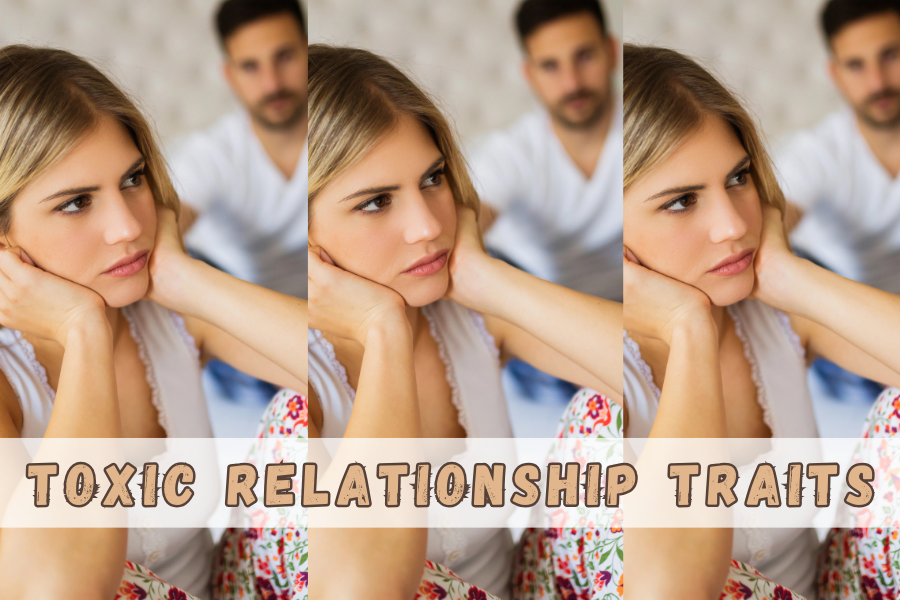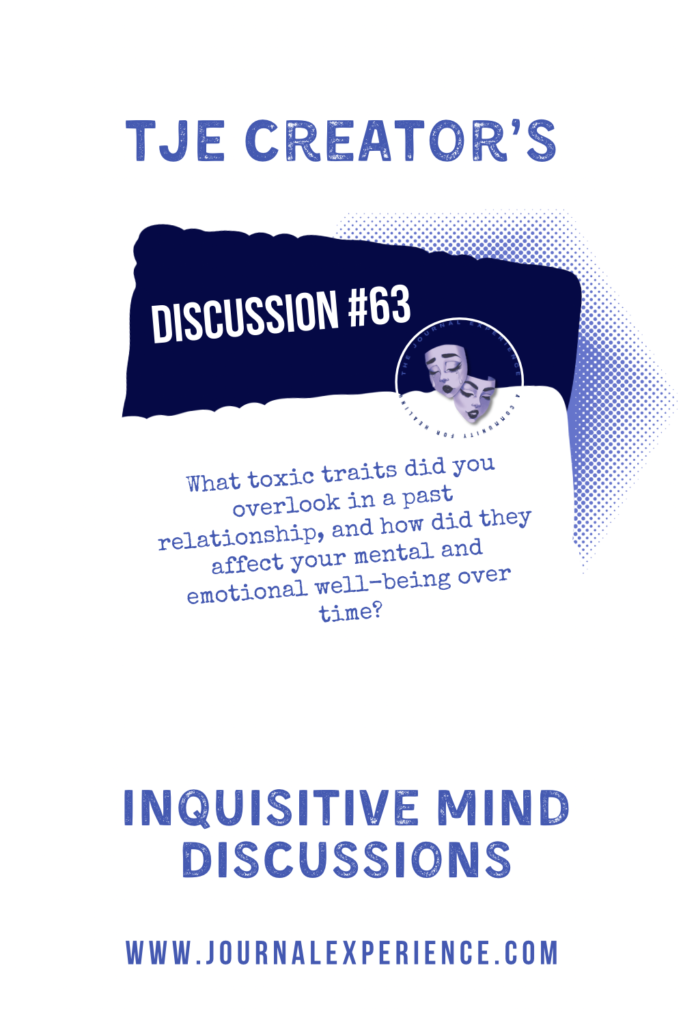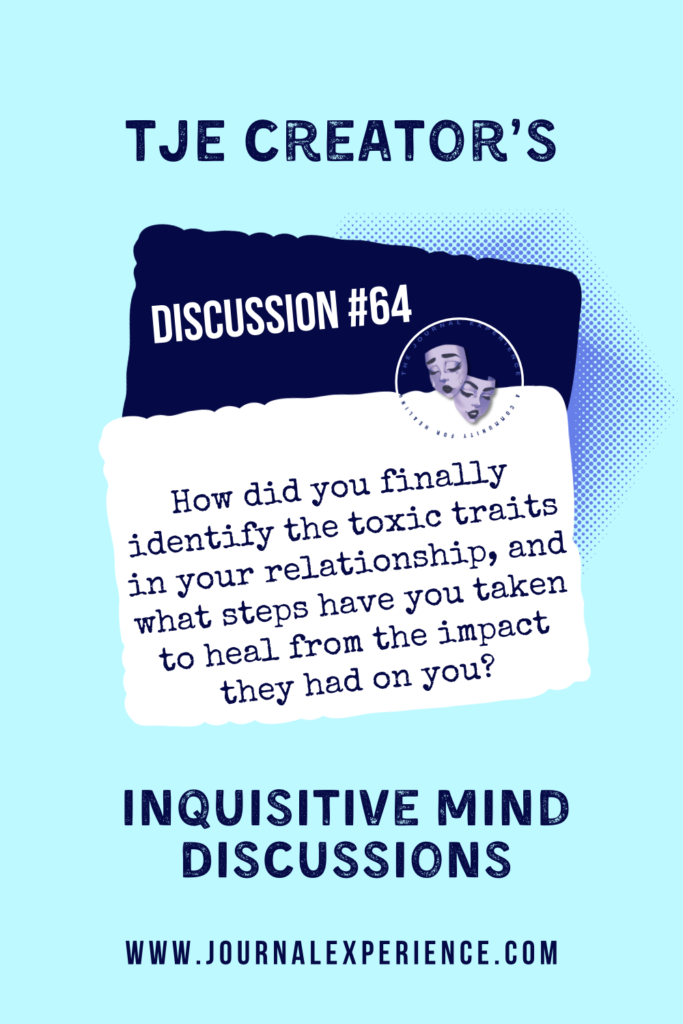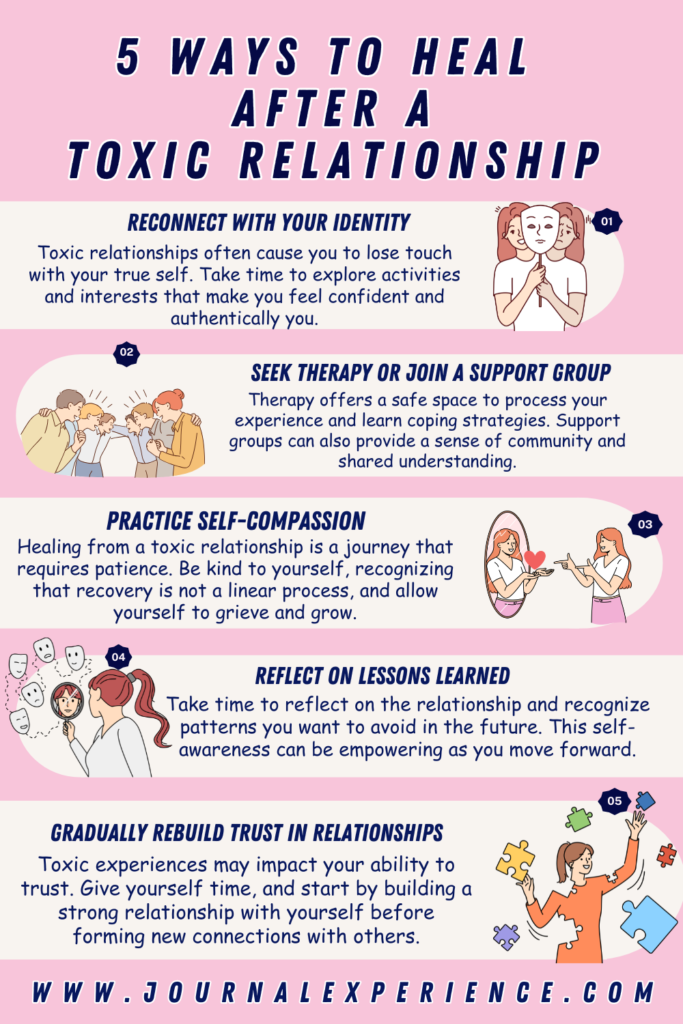Toxic relationships can be incredibly harmful to your emotional and mental well-being.

Recognizing toxic relationship traits early on can help you protect yourself and take necessary steps toward a healthier life.This post explores the common traits found in toxic relationships, how they impact mental health, strategies to deal with these behaviors, and steps for healing after moving on.
By the end of this article, you’ll have actionable insights and a clearer understanding of toxic relationships, empowering you to make choices that support your happiness and growth.
1. Identifying Toxic Relationship Traits
Spotting toxic traits early is vital for your mental health and can prevent further emotional harm. Often, these behaviors start subtly, making them harder to recognize until they have taken a toll on your well-being.
By becoming aware of these common toxic traits, you gain the clarity needed to evaluate whether your relationship is supportive of your growth. Here are some of the most common toxic traits to look out for:
- Excessive Jealousy and Possessiveness: Partners who exhibit extreme jealousy often try to control who you see and what you do, creating a sense of confinement. While a little jealousy can be normal, constant monitoring and accusations are warning signs.
- Manipulation and Gaslighting: Manipulative behavior, especially gaslighting, is a common trait in toxic relationships. This involves distorting reality to make you doubt your own feelings, memories, or perceptions, causing confusion and self-doubt.
- Constant Criticism and Belittling: Criticism in toxic relationships often goes beyond constructive feedback. This may include demeaning comments, insults disguised as “jokes,” or consistent fault-finding that erodes your self-esteem over time.
- Controlling Behaviors: Toxic partners may control aspects of your life, such as your finances, social interactions, or even your appearance. This limits your autonomy and can make you feel trapped.
- Blame-Shifting and Refusal to Take Responsibility: In toxic relationships, one partner may frequently avoid accountability by blaming you or others for their mistakes, often making you feel guilty for issues that aren’t your fault.
By identifying these traits, you can begin to evaluate whether a relationship is truly supportive of your mental and emotional growth.
2. Understanding the Impact of Toxic Relationships
The toll of a toxic relationship extends far beyond day-to-day arguments; it can have deep, lasting effects on both your emotional and physical health.
Toxic dynamics often wear down self-esteem and erode one’s sense of security and happiness, leaving lasting scars that may persist even after the relationship ends. Here are some significant impacts toxic relationships can have on your well-being:
- Heightened Anxiety and Stress: Living with constant criticism, control, or fear can lead to chronic stress and anxiety, making it difficult to relax or feel secure in your environment.
- Lowered Self-Esteem: Repeated negativity can cause you to question your worth and abilities. Toxic partners often criticize or belittle you to keep you feeling dependent and insecure.
- Emotional Exhaustion and Depression: Emotional exhaustion arises from consistently managing and dealing with toxic behaviors. Over time, this can lead to feelings of sadness, hopelessness, and depression.
- Isolation and Loneliness: Toxic individuals often attempt to isolate you from friends and family, creating a situation where you’re more dependent on the relationship, even if it’s harmful.
- Physical Health Issues: Chronic emotional stress impacts physical health, leading to headaches, fatigue, digestive issues, and other stress-related symptoms.
Understanding the effects of toxic relationship traits is crucial in recognizing the importance of making choices that protect your mental and physical health.

If toxic relationships have left lasting emotional scars, the Healing The Inner Trauma Child (HITCH) Method offers a powerful path to heal inner wounds, rebuild your sense of worth, and reclaim emotional resilience.
3. Dealing with Toxic Relationship Behaviors
Handling toxic behaviors can be challenging, especially when strong emotions and attachments are involved. It can be hard to take action when you’re invested in the relationship, but setting limits on harmful behaviors is crucial for your well-being. Here are some strategies for managing these behaviors:
- Set Clear Boundaries: Clearly state what is and isn’t acceptable in your relationship. Boundaries are essential for maintaining your mental health and reinforcing self-respect. For instance, you may set a boundary around personal time or communication with others.
- Communicate Your Feelings (When Possible): If it’s safe, try to communicate your feelings with your partner. Expressing how their behavior affects you might prompt them to reflect on their actions, although this is not always guaranteed in toxic dynamics.
- Detach Emotionally from Conflict: Toxic partners may try to provoke emotional responses to gain control. By staying calm and not engaging in arguments or manipulative tactics, you regain power over your reactions and limit their influence.
- Prioritize Self-Care: Regular self-care, such as exercise, meditation, journaling, and hobbies, can help you recharge. Taking time for yourself can remind you of your worth and reinforce your independence.
- Seek Support from Trusted Sources: Lean on friends, family, or professionals who understand your situation and can offer guidance and support. A therapist can provide strategies and insights that equip you to handle toxic dynamics more effectively.
These steps aren’t solutions but strategies for protecting your mental health while deciding on the best course of action regarding the relationship.
If setting boundaries and breaking unhealthy patterns feels overwhelming, the Codependency Therapy | Self Love Recovery Treatment Program provides step-by-step guidance to rebuild emotional autonomy and break free from codependent or toxic cycles.
4. Seeking Advice on Ending Toxic Relationships
Leaving a toxic relationship is not always easy, especially when emotions and shared history are involved, but it may be essential for your well-being and personal growth.
Taking the necessary steps to exit safely and with support can make the process more manageable and empowering. Here’s how to approach this transition safely:
- Assess Risks and Plan Accordingly: If your partner is controlling or abusive, leaving the relationship might be complicated. Plan a safe exit and consider any steps that may need to be taken to protect yourself, such as reaching out to a support network.
- Build a Support System: Having trusted friends, family, or a counselor to lean on can make the process of leaving more manageable. Support from others provides emotional strength and may assist with practical matters.
- Establish Practical Steps for Separation: Think about logistical factors like finances, living arrangements, and potential legal considerations. Addressing these aspects can ease the transition and empower you to follow through on your decision.
- Set Boundaries Post-Breakup: After leaving, it’s important to maintain boundaries, especially if your former partner tries to re-enter your life. Limiting contact or going no-contact can support your emotional recovery.
- Focus on Personal Growth During This Time: Ending a toxic relationship can be an emotional journey. Focus on activities that foster your personal development and help you transition into a healthier state of mind.
By preparing carefully, you can exit a toxic relationship in a way that prioritizes your safety and long-term well-being.

5. Healing After a Toxic Relationship
Recovering from a toxic relationship takes time, self-compassion, and a conscious effort to rebuild your sense of self, which may feel diminished or damaged. Healing is a gradual journey that involves addressing the lingering effects of trauma and reclaiming your identity. Here are some steps that may help:
- Reconnect with Your Identity: Toxic relationships often cause you to lose touch with your true self. Take time to explore activities and interests that make you feel confident and authentically you.
- Seek Therapy or Join a Support Group: Therapy offers a safe space to process your experience and learn coping strategies. Support groups can also provide a sense of community and shared understanding.
- Practice Self-Compassion: Healing from a toxic relationship is a journey that requires patience. Be kind to yourself, recognizing that recovery is not a linear process, and allow yourself to grieve and grow.
- Reflect on Lessons Learned: Take time to reflect on the relationship and recognize patterns you want to avoid in the future. This self-awareness can be empowering as you move forward.
- Gradually Rebuild Trust in Relationships: Toxic experiences may impact your ability to trust. Give yourself time, and start by building a strong relationship with yourself before forming new connections with others.
Healing is an ongoing journey that involves letting go of past trauma, reclaiming your sense of self, and allowing yourself to find peace and fulfillment beyond the toxicity.
Healing is more than moving on—it’s about understanding the deeper roots of toxic relationship patterns. The Webinar: Origins of Codependency and Pathological Narcissism offers critical insights into how early relational wounds form—and how you can break the cycle for good.
Overview
Identifying toxic relationship traits is essential for safeguarding your mental health and overall well-being. Toxic relationships may seem manageable in the beginning, but their effects can build up over time, leading to deeply ingrained emotional harm and even physical symptoms. By recognizing these harmful traits and learning ways to respond, you empower yourself to make choices that support your emotional growth, resilience, and long-term happiness.

If you’re on a journey to overcome toxic relationship experiences, consider joining The Journal Experience or subscribing to the TJE Newsletter for resources, insights, and a supportive community. Healing is a shared journey—don’t go through it alone. Join us today and take your first steps toward a life free from toxicity and filled with positive, fulfilling connections.